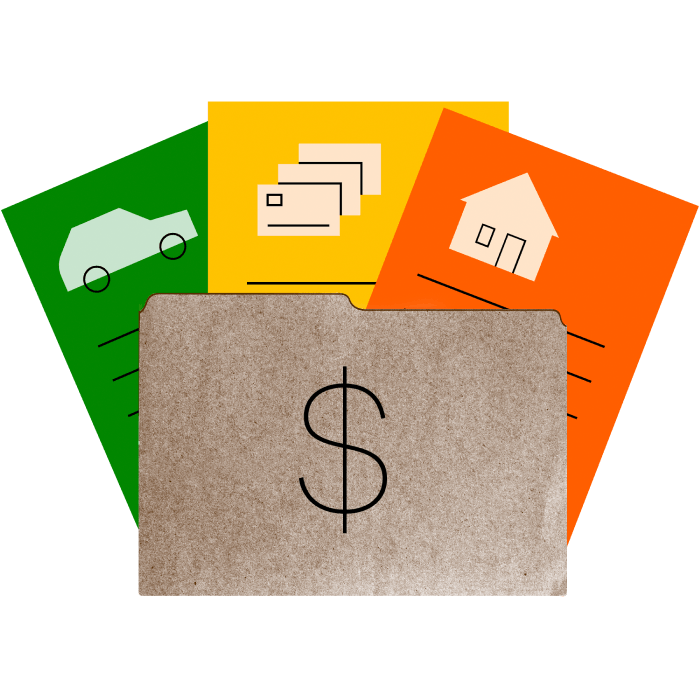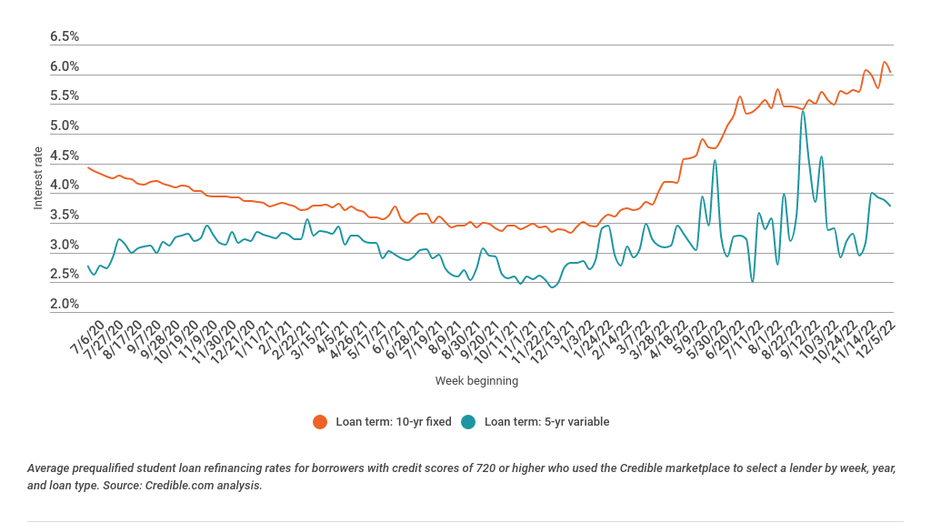
Consolidating debt can help you reduce your debt. This requires that you change your behavior. It is necessary to set a budget and limit your credit cards spending. This will help you reduce debt and pay off any credit cards. You might also consider a personal mortgage.
Peer-to-peer lending
If you're struggling with high interest rates, peer-to-peer lending might be a good option for consolidating your debts. These loans have the advantages of fixed interest rates as well as a clear repayment date. However, there are a few things to keep in mind before making this type of loan.
Peer-to–peer loans are made by connecting borrowers and investors. Peer-to-peer loans became popular after 2008's financial crisis. People with poor credit had limited options. Peer to peer lending began as a way for individuals to lend, but it is now available for institutional investors. LendingClub is closing the doors to individual investors investing in loans. However, Prosper and other sites offer individuals an opportunity to invest in a fraction of these loans.

Personal
A personal loan is a good option for those looking to consolidate their debts, but be sure to consider the fees and rates of different lenders before deciding to take out a loan. Factor in the minimum and maximum APRs. Also, consider any rate discounts or prepayment penalties. Personal loans typically have a one to seven-year repayment term.
To pay down variable-rate debt faster, you can get a consolidation loan with a fixed rate. A personal loan allows you to establish a repayment plan so you can know when you will be debt-free.
Home equity lines of credit
You can use your home as collateral when you take out a home equity credit line. You can borrow up to 85% of the equity in your home to pay off debts. Borrowers need to be aware of the potential risks associated with borrowing against equity in their home. You could lose your home if you don't make the payments on time. The home equity loan will require you to make additional payments such as the home appraisal and closing fees. It can take upto 30 years to repay a loan for home equity.
A home equity line credit is a great way to consolidate debt. Interest rates for home equity credit are lower than unsecured debt because they are secured against your home's value. Borrowing against home equity can have additional risks but it can also make it simpler to repay your debts.

Consolidating your credit card debt
Individuals who have difficulty paying their credit card bills can take out consolidation loans to consolidate their credit cards. Before you sign up for one, however, there are some things that you need to remember. For one, you must have a high income and a high credit score. A co-borrower is a person who borrows with you. This can help you get a loan term that is shorter and has a lower interest rate.
Consolidating debt is one of most efficient ways to manage your finances and get out from under debt. The goal of credit card consolidation, other than reducing your debt, is to simplify your finances. This is possible in many different ways. Each method might be the best for your situation.
FAQ
What is personal financial planning?
Personal finance means managing your money to reach your goals at work and home. It involves understanding where your money goes, knowing what you can afford, and balancing your needs against your wants.
These skills will allow you to become financially independent. This means that you won't have to rely on others for your financial needs. You're free from worrying about paying rent, utilities, and other bills every month.
You can't only learn how to manage money, it will help you achieve your goals. It can make you happier. Feeling good about your finances will make you happier, more productive, and allow you to enjoy your life more.
What does personal finance matter to you? Everyone does! Personal finance is one of the most popular topics on the Internet today. Google Trends has shown that searches for personal finance have increased 1,600% from 2004 to 2014.
Today's smartphone users use their phones to compare prices, track budgets and build wealth. You can read blogs such as this one, view videos on YouTube about personal finances, and listen to podcasts that discuss investing.
According to Bankrate.com Americans spend on average four hours per day watching TV, listening and playing music, browsing the Internet, reading books, and talking to friends. There are only two hours each day that can be used to do all the important things.
Personal finance is something you can master.
How much debt is too much?
It is vital to realize that you can never have too much money. You will eventually run out money if you spend more than your income. Because savings take time to grow, it is best to limit your spending. When you run out of money, reduce your spending.
But how much is too much? While there is no one right answer, the general rule of thumb is to live within 10% your income. That way, you won't go broke even after years of saving.
This means that if you make $10,000 yearly, you shouldn't spend more than $1,000 monthly. Spend less than $2,000 per monthly if you earn $20,000 a year. Spend no more than $5,000 a month if you have $50,000.
The key here is to pay off debts as quickly as possible. This includes student loans and credit card bills. When these are paid off you'll have money left to save.
You should consider where you plan to put your excess income. If you choose to invest your money in bonds or stocks, you may lose it if the stock exchange falls. But if you choose to put it into a savings account, you can expect interest to compound over time.
For example, let's say you set aside $100 weekly for savings. In five years, this would add up to $500. Over six years, that would amount to $1,000. In eight years, your savings would be close to $3,000 In ten years you would have $13,000 in savings.
You'll have almost $40,000 sitting in your savings account at the end of fifteen years. This is quite remarkable. You would earn interest if the same amount had been invested in the stock exchange during the same period. You'd have more than $57,000 instead of $40,000
That's why it's important to learn how to manage your finances wisely. Otherwise, you might wind up with far more money than you planned.
How do you build passive income streams?
To consistently earn from one source, you need to understand why people buy what is purchased.
It means listening to their needs and desires. Learn how to connect with people to make them feel valued and be able to sell to them.
Next, you need to know how to convert leads to sales. Finally, you must master customer service so you can retain happy clients.
You may not realize this, but every product or service has a buyer. If you know who this buyer is, your entire business can be built around him/her.
A lot of work is required to become a millionaire. To become a billionaire, it takes more effort. Why? It is because you have to first become a 1,000aire before you can become a millionaire.
Then you must become a millionaire. Finally, you must become a billionaire. It is the same for becoming a billionaire.
How do you become a billionaire. Well, it starts with being a thousandaire. You only need to begin making money in order to reach this goal.
Before you can start making money, however, you must get started. Let's look at how to get going.
What is the best way for a side business to make money?
If you want to make money quickly, it's not enough to create a product or a service that solves an individual's problem.
It is also important to establish yourself as an authority in the niches you choose. It's important to have a strong online reputation.
Helping others solve problems is the best way to establish a reputation. It is important to consider how you can help the community.
After answering that question, it's easy to identify the areas in which you are most qualified to work. There are many online ways to make money, but they are often very competitive.
If you are careful, there are two main side hustles. One involves selling products directly to customers and the other is offering consulting services.
There are pros and cons to each approach. Selling services and products provides immediate gratification as you receive payment immediately after shipping your product or delivering your service.
On the flip side, you might not reach the level of success you desire unless you spend time developing relationships with potential clients. These gigs are also highly competitive.
Consulting allows you to grow your business without worrying about shipping products or providing services. But, it takes longer to become an expert in your chosen field.
You must learn to identify the right clients in order to be successful at each option. This takes some trial and errors. It pays off in the end.
Why is personal financing important?
If you want to be successful, personal financial management is a must-have skill. We live in a world with tight finances and must make tough decisions about how we spend our hard earned cash.
Why then do we keep putting off saving money. Is there anything better to spend our energy and time on?
Yes and no. Yes, because most people feel guilty when they save money. Yes, but the more you make, the more you can invest.
Spending your money wisely will be possible as long as you remain focused on the larger picture.
It is important to learn how to control your emotions if you want to become financially successful. You won't be able to see the positive aspects of your situation and will have no support from others.
Unrealistic expectations may also be a factor in how much you will end up with. This is because you haven't learned how to manage your finances properly.
Once you've mastered these skills, you'll be ready to tackle the next step - learning how to budget.
Budgeting means putting aside a portion every month for future expenses. You can plan ahead to avoid impulse purchases and have sufficient funds for your bills.
You now have the knowledge to efficiently allocate your resources and can start to see a brighter financial future.
What is the difference between passive income and active income?
Passive income is when you make money without having to do any work. Active income requires effort and hard work.
Your active income comes from creating value for someone else. Earn money by providing a service or product to someone. Selling products online, writing ebooks, creating websites, and advertising your business are just a few examples.
Passive income is great as it allows you more time to do important things while still making money. Most people aren’t keen to work for themselves. Instead, they decide to focus their energy and time on passive income.
Passive income doesn't last forever, which is the problem. If you wait too long before you start to earn passive income, it's possible that you will run out.
You also run the risk of burning out if you spend too much time trying to generate passive income. So it's best to start now. You'll miss out on the best opportunities to maximize your earning potential if you wait to build passive income.
There are three types to passive income streams.
-
Business opportunities include opening a franchise, creating a blog or freelancer, as well as renting out property like real estate.
-
These investments include stocks and bonds as well as mutual funds and ETFs.
-
Real Estate includes flipping houses, purchasing land and renting properties.
Statistics
- Etsy boasted about 96 million active buyers and grossed over $13.5 billion in merchandise sales in 2021, according to data from Statista. (nerdwallet.com)
- While 39% of Americans say they feel anxious when making financial decisions, according to the survey, 30% feel confident and 17% excited, suggesting it is possible to feel good when navigating your finances. (nerdwallet.com)
- Shares of Six Flags Entertainment Corp. dove 4.7% in premarket trading Thursday, after the theme park operator reported third-quarter profit and r... (marketwatch.com)
- U.S. stocks could rally another 25% now that Fed no longer has ‘back against the wall' in inflation fight (marketwatch.com)
- 4 in 5 Americans (80%) say they put off financial decisions, and 35% of those delaying those decisions say it's because they feel overwhelmed at the thought of them. (nerdwallet.com)
External Links
How To
How to Make Money online
Making money online is very different today from 10 years ago. The way you invest your money is also changing. There are many ways to earn passive income, but most require a lot of upfront investment. Some methods are easier than other. However, there are many things you need to do before investing your hard-earned funds in anything online.
-
Find out what kind investor you are. PTC sites are a great way to quickly make money. You get paid to click ads. However, if long-term earning potential is more important to you, you might consider affiliate marketing opportunities.
-
Do your research. Before you commit to any program, you must do your homework. Read through reviews, testimonials, and past performance records. You don't want your time or energy wasted only to discover that the product doesn’t work.
-
Start small. Do not just jump in to one huge project. Instead, you should start by building something small. This will let you gain experience and help you determine if this type of business suits you. Once you feel confident enough to take on larger projects.
-
Get started now! You don't have to wait too long to start making money online. Even if your job has been full-time for many years, there is still plenty of time to create a portfolio of niche websites that are profitable. You just need a good idea, and some determination. Take action now!